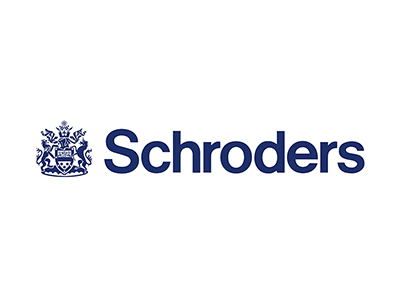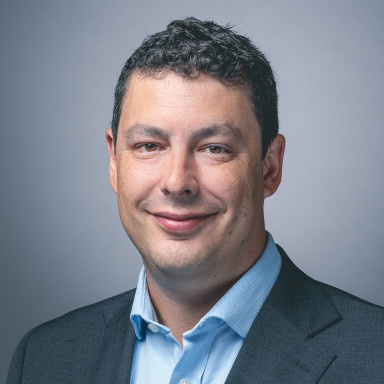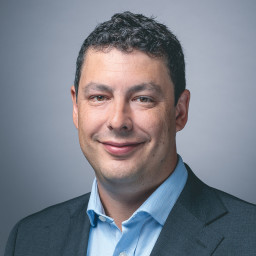A portfolio of high-quality companies operating within Asia
Richard Sennitt is a veteran investor with three decades’ worth of experience
Schroders have invested in a large team of analysts across the region for the managers to utilise
This fund is on our Wealth Shortlist of funds chosen by our analysts for their long-term performance potential
How it fits in a portfolio
The Schroder Asian Alpha Plus fund aims to grow capital over the long-term by primarily investing in large Asian companies from countries such as China, India and Taiwan.
We think this could be a good option within the Asian portion of a globally diversified portfolio. Investments in emerging markets add risk and the associated volatility should be considered when constructing a long-term portfolio.
Manager
Richard Sennitt has been lead manager of the fund since March 2021 following the retirement of veteran investor and long-term colleague, Matthew Dobbs. Sennitt joined Schroders in 1993 and has a wealth of experience investing in Asian markets having managed the Schroder Asian Income Fund since 2001, as well as a few other Asian income portfolios that are run similarly.
Abbas Barkhordar also became co-manager in 2021 when Dobbs retired. He joined Schroders in 2007, initially as an analyst on the Emerging Markets Equities team. While he has applicable analyst experience, this is one of Barkhordar's first fund manager roles.
Both managers are also responsible for the close-ended Schroder Asia Pacific Fund which invests in a near identical way. Given the overlap in process and investable universe, we think they can comfortably handle their workload.
There are thousands of companies in this part of the market, so the managers have the support of a large team analysts based across Asia. They help sift through the market and uncover what they believe to be the most promising opportunities.
Process
Sennitt and Barkhordar believe that Asian markets are a stock pickers paradise. Since they tend to be less researched than developed markets there is plenty of opportunity to uncover hidden gems. They tend to be volatile though and that’s why the managers believe the best way to navigate these risks is by investing in high quality businesses – but without paying too much for them.
To whittle down their large investment universe, the managers work closely with Schroders' Asian equities team to help generate research and ideas for the fund. They look for companies they think can sustain returns over the long run. They should have good cash flows, strong franchises, a quality management team, superior corporate governance standards and a strong business model that's able to defend against competition. Next, they aim to forecast the earnings of each business, which could ultimately influence the direction of the share price.
While the managers mainly focus on individual company analysis, they also consider economic factors to provide broader context to their research. This may involve looking at inflationary trends and monetary policy, amongst other factors.
This results in a portfolio of between 55-70 companies. Over half of the portfolio is invested in financials and technology stocks with significant investments in TSMC – the largest global semiconductor producer – and Samsung Electronics.
Geographically, they invest a lot less than their benchmark in China. In contrast, they invest more in Hong Kong where valuations tend to be lower, and Singapore. India and Taiwan also form a meaningful part of the fund’s regional spread.
The managers adopt a long-term perspective when making investment decisions, which often results in minimal changes. Over the past 12 months, they added Netease, a Chinese communication services company driven by increased confidence in its gaming pipeline. Other notable new investments include two Korean companies: Kia Corp, the car manufacturer, and SK Hynix, a leading semiconductor firm.
In contrast, the managers decided to sell their stake in Chinese healthcare company, Wuxi Biologics due to mounting concerns about regulatory changes. They also divested from Singapore technology company Venture Corporation following a period of strong performance.
Please note the managers can use derivatives which, if used, adds risk. They mainly invest in larger firms, but they also have the ability to invest in higher-risk smaller companies.
Culture
Schroders is a well-established asset manager with offices all over the world. It believes the importance of Asian and emerging markets in the global economy has increased significantly over the years and expects this to continue. We think Schroders is dedicated to investing in this part of the world and supporting the teams that invest there.
We believe incentivisation for Schroders fund managers and analysts is focused on longer-term performance potential and is therefore aligned with their investors. The Asian equities team is based across the UK and Asia, and this remains an important resource for the group’s range of Asian funds.
ESG Integration
Schroders has invested significantly in ESG resources and tools in recent years. Each investment desk has access to a variety of data sources that have been brought together into a proprietary platform called SustainEx, which allows investment teams to quantify a company’s positive and negative contributions to society. The ESG agenda at Schroders has significant support from senior management, and in 2019, the firm completed its acquisition of impact investment specialist Blue Orchard.
All Schroders funds were required to pass the firm’s inhouse ESG accreditation process by the end of 2020. All new funds must also be ESG accredited, and investment teams must reapply for accreditation on an ongoing basis. The ESG accreditation process is managed by the Sustainability team. They sit on the investment desk and are objective in their approach. There is a set list of criteria that funds must meet to become accredited, and the process is substantial – no fund has ever gained accreditation on the first attempt. Fund managers are also expected to demonstrate improved levels of ESG integration over time.
The Schroders Sustainability team acts as a focal point for ESG, proxy voting, and engagement. When it comes to proxy voting, Schroders has structured policies in place and is transparent on the reasons proposals have been voted against. On the ESG engagement side, the firm’s activities and outcomes are monitored, tracked and reported in their quarterly Sustainable Investment reports and annual Sustainability reports. There are also a range of ESG-related insight and thought leadership articles available on the firm’s website.
While Schroders have made good progress with respect to ESG, this fund is not managed to a responsible mandate.
Cost
This fund is available at an annual ongoing fund charge of 0.96%, but with a 0.08% saving it’s available to HL clients for 0.88%. The HL platform fee of up to 0.45% per year also applies, except in the HL Junior ISA, where no platform fee applies.
Performance
Sennitt has an extensive track record investing in Asia. He has managed the Schroder Asian Income Fund since 2001 – which is different from this fund as it aims for income and growth. A similar process is used to find investment opportunities though and the universe of companies being researched is similar.
Since being appointed lead manager of this fund in March 2021 the fund has fallen by 3.46%*, underperforming the IA Asia Pacific excluding Japan peer group return of 0.59%. The fund’s benchmark, the MSCI AC Asia ex Japan index, fell by 0.34% over this period. Our analysis suggests that the managers stock selection has been a headwind for performance
Over the past 12 months (to end of September 2024) the fund has returned 14.10% vs 14.25% and 17.74% for the IA sector and benchmark, respectively. The technology sector was a benefit for performance, particularly Taiwanese companies MediaTek and TSMC. In contrast, financials were a relative headwind for performance with Hong Kong based AIA Group and Indian Private Bank HDFC among some of the biggest detractors.
We think the fund has good long-term prospects, though its investment style means it can at times be more volatile than the average fund in the IA Asia Pacific ex Japan sector. That said, there are no guarantees how the fund will perform in future.
Annual percentage growth
September 19 – September 20 | September 20 – September 21 | September 21 – September 22 | September 22 – September 23 | September 23 – September 24 | |
|---|---|---|---|---|---|
Schroder Asian Alpha Plus | 20.23% | 12.94% | -12.07% | 1.14% | 14.10% |
MSCI AC Asia ex Japan | 12.63% | 10.00% | -13.61% | 1.78% | 17.74% |
IA Asia Pacific ex Japan | 8.26% | 15.31% | -10.69% | 0.34% | 14.25% |


